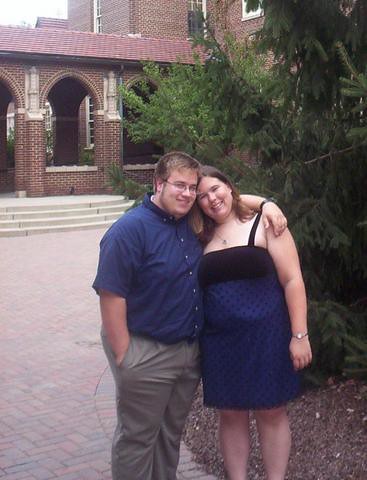I delivered this sermon at my church on Sunday. I thought everyone might like a look at it. Keep in mind that is is just notes, not a transcript. Let me know what you think!
Since we just had Christmas so recently, it can be difficult to look at today's text.
Who wants to talk about stoning and martyrdom?
In the Lutheran church, and in many other churches, including the catholic and Episcopalian churches each of the three days after Christmas is dedicated to the memory of a saint.
1st is St. Stephen
2nd is St. John the Apostle and Evangelist - member of Jesus' inner circle, son of Zebedee
3rd is the Holy Innocents - children killed by Herod in an attempt to kill Jesus
Today the alter cloths are red as we remember St. Stephen. We remember him not only because of how he died but also because of how he lived.
We first encounter Stephen in the book of Acts. The disciples were called to Jerusalem.
The problem is that there were two groups of Jews living there, Grecian Jews who may have been born outside of Palestine, spoke Greek, and had adopted many of the Greek customs that were not opposed to their faith, And the Hebraic Jews who were most likely born in Palestine, spoke mainly Aramaic, and were culturally Hebrews.
There were always tensions between the groups. People from both these groups had become Christians, and as the church grew quickly, it was discovered that the widows who were Grecian Jews were not being looked after like the widows who were Hebraic Jews were. There was discrimination going on.
Apostles, they realized two things, one that the situation was not right, and two, that they were being pulled two ways in their ministry toward their calling to prayer and the teaching of the word, and toward the very important ministry of caring for the poor in their midst.
To deal with both these issues they invited the church to select seven men from among them who had good reputations, and were full of the Spirit, and of wisdom. These men would look after the administration of the care of the poor, and the Apostles would devote themselves to prayer and the teaching of the Word.
So they chose Stephen, who is singled out as a man full of faith and the Holy Spirit.
Philip, Prochorus, Nicanor, Timon, Paramenas, and Nicolas were also chosen although we do not know much about them. It is interesting to note that all of these names are Greek. The church solved the problem of discrimination by placing the ones who were being discriminated against in charge of the offending area!
Scripture tells us that Stephen was one of the most upright and Godly leaders of the church in Jerusalem. However, his ministry was not appreciated by all.
Acts 6:
8 And Stephen, full of grace and power, did great wonders and signs among the people.
9 Then some of those who belonged to the synagogue of the Freedmen (as it was called),
and of the Cyre'nians, and of the Alexandrians, and of those from Cili'cia and Asia,
arose and disputed with Stephen.
10 But they could not withstand the wisdom and the Spirit with which he spoke.
These same Jewish Christians who were not treating the widows equally were now going after the new leaders of the church. They were out to get Stephen. They made up some false charges and dragged him before the Sanhedrin. The same court before which Jesus stood. They even leveled some of the same charges that were leveled against Jesus.
They accused Stephen of blaspheming - of saying that Jesus would destroy the temple
and change the customs handed down from Moses.
To understand just how serious this charge is, you have to know a little bit about the Jews that were a part of that court. For these Jews, exile was fresh in their minds. They remembered being held in captivity by a foreign power, Babylon. The longing that they felt for their homeland, and for the temple there, was quite fresh. After all, this temple was the place where the people encountered God. Who were these men Jesus and Stephen to speak of destroying the temple?
Much like Jesus, Stephen did not directly answer the charges leveled against him. Instead he used the opportunity to talk about the size, glory, and majesty of God. He spends the larger part of the 7th chapter delivering a sermon which wanders through the Old Testament speaking of how God's people have mistreated God's messengers in the past.
I want to focus with you for a moment on the last part of Stephen's sermon.
Acts 7:
48 Yet the Most High does not dwell in houses made with hands; as the prophet says,
49 'Heaven is my throne, and earth my footstool. What house will you build for me, says the Lord, or what is the place of my rest?
50 Did not my hand make all these things?
Stephen is calling them to account for how they treat God. They treat God as if God only exists in the temple. The fact is that God created the very stones out of which the temple was built. God mixed the dirt and the water which formed the mortar.
Just as God was not bound by the Temple in Stephen's time, God is not bound by THIS building in OUR time. It is no secret that our congregation is going through some difficult times. The vacancy of THIS building is a very real possibility.
However, as we face this fact, it is important for us to realize that it is God who created this place, it is God who created us, and it is God who will accompany us on our respective journeys from this place.
Back to our story about Stephen, his answer was not what the members of the Sanhedrin were waiting to hear. They convicted him of blasphemy and dragged him outside the city to be stoned. The men who had gathered there to stone Stephen handed their coats to a man named Saul. Tradition tells us that this is Saul of Tarsus, the man who would later become Paul, one of the foremost spokespersons for the budding Christian faith.
As the stones come raining down on him, Stephen echoes a very familiar phrase,
59 And as they were stoning Stephen, he prayed, "Lord Jesus, receive my spirit." 60 And he knelt down and cried with a loud voice, "Lord, do not hold this sin against them." And when he had said this, he fell asleep.
Stephen was the first Christian martyr. An upright man of God, he stood alone before the earthly powers of his day, holding fast to the Truth revealed in Jesus Christ, the baby whose birth we celebrate this season. As we go forth from this place, let us remember the example of Stephen, may we be so inspired to stand for Truth in our own lives.
Let us pray,
Oh God our Comforter,
We thank you for the life and witness of your servant Stephen. Keep us mindful of the lessons that his ministry taught us. Help us to remember to keep our hearts and minds focused on you, not on earthly things which cannot contain you. Direct our ways in the path of your Truth, even when it isn’t popular or expedient.
In Jesus name,
Amen
Subscribe to:
Post Comments (Atom)



No comments:
Post a Comment